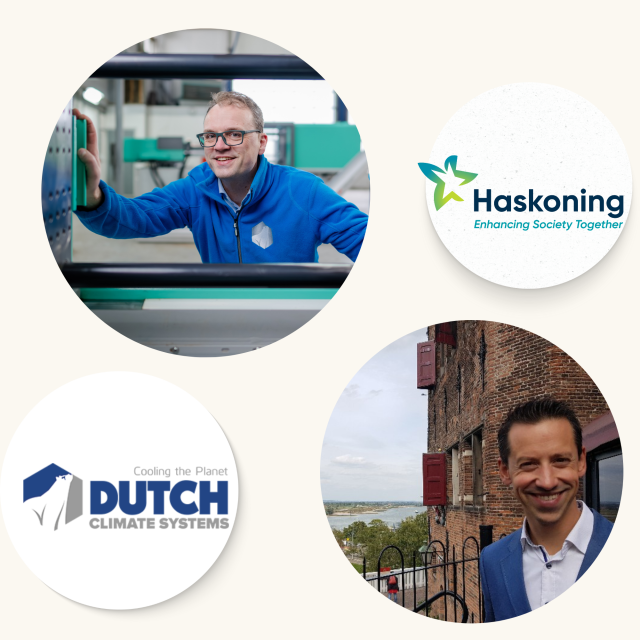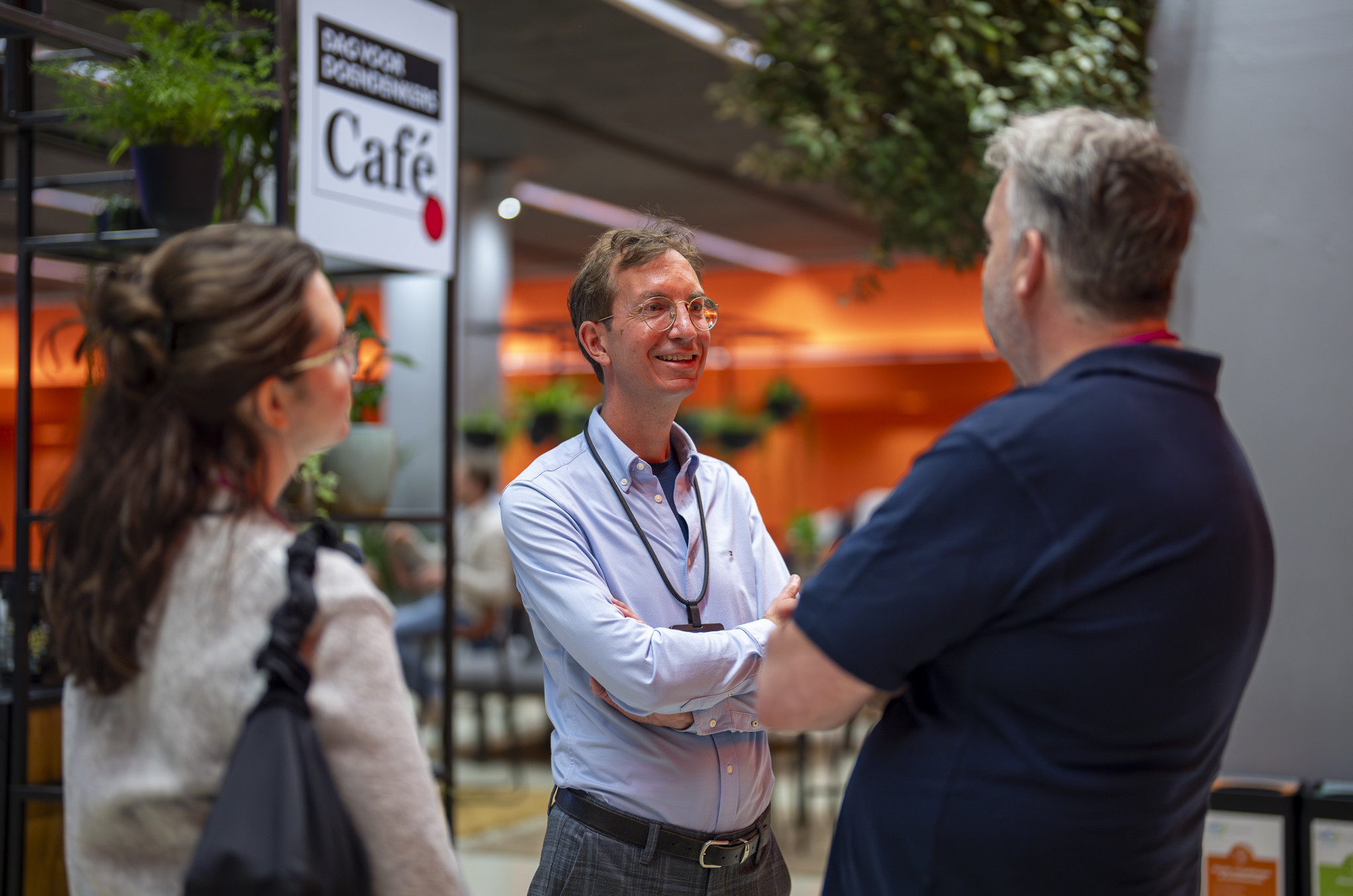Leadership in motion: the story of Arthur van der Lee and Wouter Peeters

They met during the TIAS Sustainability Leadership Programme, a six-day course where you work at management level on your leadership style and the sustainability challenge within your organisation. Arthur, a project manager at Dutch Climate Systems, was the guest speaker to talk about the company that has been at the forefront of pioneering air-conditioning technology for 15 years. Wouter, project manager and consultant within Haskoning, participated to put his own consulting practice under the microscope. In this talk, they explore together what sustainable leadership means.
So, what does leadership mean to you guys?
Wouter: "Providing clarity, inspiring and setting a goal that people recognise themselves in. So that you can create something beautiful as a team."
Arthur: "Leadership requires unselfishness, perseverance and daring to park your ego. Especially if you have goals at odds with the status quo. But leadership also means not running ahead on your own. If you are the only one who believes in the goal, you are not working as a team. That doesn't mean letting go of your ambitions, but it does mean inspiring others and bringing them into your story. Want to run faster than your team? Then take a step back first, so you can move forward together."
When you pioneer, it is often a challenge to get the rest to go along, right?
Arthur: "Yes, I do recognise that. Our director is someone with a radical sustainable vision. He thinks differently. More holistic, more people-oriented. Different from what most people are used to, perhaps. Sometimes that clashes rock hard, especially with financiers who think in spreadsheets and quick returns on investment. And then you see the essence of pioneering: you can have a brilliant idea, but without the skill to get people on board, you get stuck. You have to navigate between sticking to your course and getting people on board. Sometimes that means slowing down. Sometimes it means holding on, so that eventually people start thinking: why is he being so persistent? That is leadership in practice: inspire, balance and keep moving, even if your environment is not yet ready."
"I told the participants what you encounter along the way when you try to establish something completely new in the market."
Arthur van der Lee, Project manager
Wouter, you worked as a military officer in the Ministry of Defence for 12 years. How did that shape your leadership?
Wouter: "In Defence, you are always working under pressure and on each other's lips. As a result, you quickly learn how a team functions and what everyone's motives are. In the consultancy world, the pace is different, people just close the door behind them after work, so to speak. But the essence remains the same: working with people from different backgrounds towards a common goal. That team process still drives me."
You both participated in the Sustainability Leadership Programme from different perspectives. What did you bring Arthur, and what did you take Wouter?
Arthur: "I didn't come to bring a theory, but a practical story. With Dutch Climate Systems, we have spent the last 15 years going all out to develop a technology that has a real impact on climate change in concrete, measurable reductions. The struggles, the choices, the motivations: that resonated with the group, all of whom also work at large organisations with ambitious plans."
Wouter: "What stuck with me was the importance of tenacity. Arthur showed how long the road is if you want to achieve something radically sustainable. That tied in nicely with a lesson on strategy: companies that combine sustainability with profitability often turn out to be more effective. It's not just about ideals, but also about a strong, marketable product that makes an impact. Like Dutch Climate Systems' air conditioners, for example."
And what will you do differently after the course at TIAS, Wouter?
"During training, I realised that we were taking a too one-sided technical approach to our services. Together with my team, we therefore adjusted our value proposition. We now look more broadly: not just at solutions, but also at the changing world that companies are investing in - with uncertain policies, changing energy prices and new risks. The training has given me tools to have that conversation more strategically."
Over TIAS
With the Sustainability Leadership Programme, you gain new knowledge and skills in six days to boost the sustainable transition in your organisation at strategic level. This short training programme provides you with knowledge and tools to increase the sustainable impact of your organisation. Starting from your personal mission and your organisation's task. In this way, you increase your own possibilities for responsible leadership.
